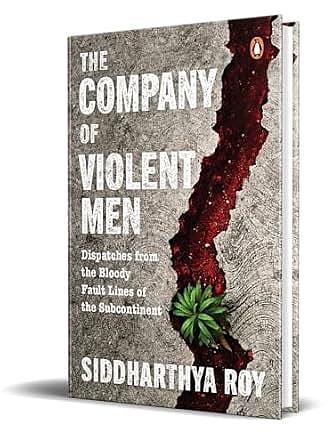Battle Lines

The cataclysmic events of 9/1, and others of its ilk, unleashed a veritable tsunami of books on religious fundamentalism, or more specifically, on Islamic terrorism. These books adopted a dizzying array of approaches, from detailing geopolitical ramifications, to describing intelligence operations, to dealing with the security challenges that came in their wake. While heavy on scholarship, these offerings were largely bereft of the human touch.
Debutant author, Siddharthya Roy, in his book, The Company of Violent Men takes the road less travelled in attempting to redress the balance. He personally engages with both the perpetrators and the victims of insurgencies. By doing so, he hopes to build an objective narrative of the situation at Ground Zero.
The author gets off to a flying start with some descriptions of the Bangladeshi landscape that would have made Amitav Ghosh proud. The first six chapters deal with Islamic fundamentalism—and its victims—in this benighted country. This part of the book is intelligently structured and well written. Particularly evocative is the description of young children—such as the nine-year-old Shaheen—caught in the horrific crossfire of violence. It is, however, puzzling to find that no photographs have been included, which would have given a poignant face to such people. Given, by his own admission, that a photographer was with him in his assignments, this is an omission in terms of impact creation.
Imran Khan: Pakistan’s Prisoner
27 Feb 2026 - Vol 04 | Issue 60
The descent and despair of Imran Khan
Halfway through we see an abrupt shift in tone, as the author goes into flashback mode. The setting is Germany, where he has a journalistic scholarship to study—what else?—his theory that the Islamic state would regroup there before resuming its activities in the Indian subcontinent. The style of objective reporting is abandoned in favour of a personal one, with glimpses of the author’s romantic tryst with a married journalist.
We learn about three characters—Junaid Alawash (Saddam Hussein’s so-called bodyguard), Zakir Kibira, who postulates that China is behind terrorist attacks in Dhaka, and an intelligence operator simply identified as the Serial Bluffer. In each case, the author concludes that there are too many holes in each informant’s story to be of any value. The point that the author is trying to belabour is that in the world of intelligence and counterintelligence, fragments of truth are buried under layers of lies.
Without any warning or explanation, the scene of operations shifts to Chhattisgarh, in pursuit of Maoist rebels. There are two timelines involved—2016, when the exercise is abortive on account of the shortcomings of a fixer, and 2023. The second foray is sketched out in greater detail and features not only snakes in human clothing, but actual Russell vipers and King cobras!
By way of conclusion, the last four chapters are episodic in nature. The first relates to a Rohingya warlord, who is milking the system. The second, to a nefarious bunch of louts who seem determined to make the author meet a gruesome end. The third, to a wannabe hardcore Jihadi, who is also a meth and hard metal fan. The final chapter looks at Kashmiri militants from the lens of women who are carnally abused by them.
It is difficult what to make out of a book that is part personal memoir, part reportage and part a rant about Western notions of aid. Make no mistake, the author’s professed objectivity disappears when he weighs in on how Western journalists are pampered at the expense of others. At the same time, the genuineness of his interactions goes beyond that of a bleeding-heart liberal. Best then, to characterise Roy’s work as the proverbial Curate’s egg—good in parts, (read when reporting objectively in evocative prose), unappetising in others, (when injecting the personal element), and skippable in parts (when he fulminates at others using four-letter words).

